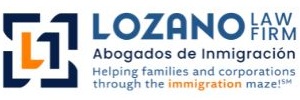Over time, it’s become increasingly clear that immigrants in the United States play a vital role in job creation. In 2019 alone, approximately 3.2 million immigrant entrepreneurs contributed substantially to the nation’s annual income. This growth is a solid benchmark for foreign nationals looking to expand their companies in the States.
However, business immigration law has always taken a prudent approach to welcoming international stakeholders. Identifying the proper Visa for businesspeople is no easy task. Treaty Visas, for instance, allow foreign traders and investors to enter and conduct business in the U.S. market.
Here, you will explore the intricacies of Treaty Visas, especially the contrasting features for traders and investors. Discover how partnering with a top-notch E-1 Visa attorney can significantly improve your prospects of obtaining your business immigration goals.
An E-1 Visa Attorney Assists On Choosing The Right E Visa
While it’s true that establishing a business in your own country is already challenging, it is equally tough in a foreign land. An appropriate Visa is among the many things you need to settle to kickstart your business goals in the United States.
To maneuver the country’s enterprise laws efficiently, it’s essential to deeply understand one of the critical concepts of business-based immigration: Treaty Visas.
An immigration lawyer’s skills are invaluable in navigating a complex web of Treaty Visa legal requirements and documentation. These legal professionals possess in-depth knowledge of the type of Work Visas that best suit you.
Moreover, these Visa lawyers offer guidance through the complexities of these Visa categories. You can rely on them to understand the eligibility criteria for such Visas.
Navigating Treaty Visas
Treaty Visas are nonimmigrant Visas available to individuals from countries with treaties of commerce and navigation with the United States. Investors from these treaty nations can conduct business activities in the country. Ultimately, these Visas promote economic cooperation and foster mutually beneficial relationships in participating countries.
To better understand this Visa category, you must have a clearer picture of their types and eligibility. Knowing what Visa classification fits your needs gives you a greater advantage in this legal matter. The two main types of Treaty Visas are the E-1 Treaty Trader Visa and the E-2 Treaty Investor Visa.
E-1 Treaty Trader Visa
The E-1 Visa is for individuals who trade substantially between the United States and their home country. The Visa applicant must be a citizen of a treaty nation.
To enhance your Visa application for this category, you must adhere to several requirements, including:
- Documents establishing your citizenship in the treaty country.
- Engagement in substantial trade within the United States.
- Involvement in principal trade with the United States.
- Evidence demonstrating your intention to return home after the Visa period.
Trade for temporary workers is generally defined as the exchange of items between both countries. This exchange includes goods, services, transportation, and tourism.
E-2 Treaty Investor Visa
The E-2 Visa, on the other hand, is for individuals making significant investments in a U.S. enterprise. Acquiring this legal document entails securing various requirements for a successful application. Treaty Investor Visas allow for establishing a business rather than temporary trade.
To be eligible, you must be a citizen of a treaty country and prove the invested capital is substantial and subject to risk. Additionally, you must prove that you legally acquired the funds invested in the company or firm.
You must also establish significant involvement and control over the enterprise. Moreover, compelling evidence that the company has the potential to support you and your family within five years of entering the United States is also among the requirements.
Behind these general criteria lies the more intricate differences between these two Treaty Visa categories.
Key Differences Between E-1 & E-2 Visas
Despite being vital financial and diplomatic links between the United States and treaty nations, E-1 and E-2 Visas still have significant distinctions.
Trade & Investment Requirements
The E-1 Visa focuses on the volume and continuity of trade between the United States and the treaty country. If you are applying for a Treaty Trader Visa, it’s crucial to establish substantial and principal trades.
- Substantial Trade. “Substantial” denotes a consistent flow of sizable international trade items through numerous transactions over time. There is no minimum monetary threshold, but the trade volume must be sufficient to ensure a continuous flow of global trade between the United States and the treaty country.
- Principal Trade. The trade must be primarily between the United States and the treaty country. This means that more than 50% of the total volume of international trade conducted by the E-1 Visa holder must be between the two countries.
Meanwhile, the E-2 Visa centers on the size and impact of the investment in the United States. You must demonstrate these factors to strengthen your application:
- Substantial Investment. The E-2 Visa requires a considerable capital investment in a bona fide enterprise or establishing a new business in the United States. While there’s no fixed minimum dollar amount, the investment must be significant relative to the total cost of purchasing or creating a new enterprise.
- At Risk. The investment must be at risk, meaning you must have committed the capital so that it is subject to partial or total loss if the enterprise fails. This commitment must be real and irrevocable.
Generally, both Visas require that your business activities benefit the U.S. economy and create or sustain economic engagement.
Origin Of Goods & Funds
The treaty trader is available to anyone employed by a legitimate and continuous U.S. market trading business. You aren’t required to be the source of traded goods, services, or finances. Meanwhile, you can simply represent a corporate entity as a senior manager or other key employee.
The conditions for an E-2 Visa are more stringent. Your capital must come from personal savings or funds secured through lawful means. Using someone else’s finances to obtain this Visa is against the regulations. It is only accessible to those demonstrating a financial commitment to a U.S. business venture.
Application Processes
Since both Visas fall within the nonimmigrant Visa category, the application process begins with submitting the Form DS-160, Online Nonimmigrant Visa Application. You must complete this form for all individuals accompanying you, including family members, and submit it to a US consular officer.
In addition to this form, you must provide a package of supporting documents, which may vary depending on the Treaty Visa you’re applying for. For an E-1 Visa, you must furnish documentation of the type of trade you’ll engage in, continuity plans, and other relevant papers.
To obtain an E-2 Visa, you must establish the size and source of your investment funds and the enterprise’s operational viability. You also need to offer proof of your business plan and launch capability. Remember that business immigration law officers may request additional documents when required.
Job Creation
While job creation in the United States can be a positive outcome of the trade activities conducted under an E-1 Visa, it is not a primary requirement or expectation. The E-1 Visa does not mandate creating a specific number of jobs.
Increased trade activities might indirectly create work opportunities from international transactions, such as logistics, distribution, and support services. However, these positions are not the central focus of the application and approval process.
The E-2 Visa, on the other hand, places significant importance on the investment’s capacity to create jobs for U.S. workers. The investment must be substantial and support the creation or maintenance of direct employment opportunities within the United States.
You often need to present a business plan that outlines the enterprise’s projected growth and expected number of jobs to be created. This plan should demonstrate that the enterprise will require hiring U.S. workers and contribute to the country’s labor market.
Distinguishing between these closely related categories can be tricky, but understanding their unique factors can empower you to make informed decisions. Given the critical points and differences, seeking guidance from a reputable law firm in Texas is wise. They can provide clarity and quality advice tailored to your specific situation.
Seek The Assistance Of Lozano Law Firm
When navigating the complexities of Treaty Visas, it is crucial to seek the assistance of a reputable law firm focusing on business immigration. Lozano Law Firm boasts a team of qualified treaty investor lawyers dedicated to helping foreign traders achieve their business objectives in the United States.
With personalized guidance and solid support, this established law firm in San Antonio, Texas, empowers you to confidently identify the fitting Treaty Visa for you. Therefore, it is advisable to work with their skilled team of attorneys for your business immigration requirements.
Summary
The business immigration law enables eligible foreign nationals to apply for Treaty Visas, including an E-1 Treaty Trader Visa and an E-2 Treaty Investor Visa. Both are key financial and diplomatic connections between the United States and treaty nations. Despite their apparent similarities, they differ significantly in trade and investment requirements, funding sources, application processes, and job creation aspects.
By tapping into the skills of a business immigration attorney from Lozano Law Firm, you can navigate the Treaty Visas with clarity and assurance. With their skills and guidance, these legal professionals empower you to set out on a successful business venture in the evolving U.S. market.

 Thank you for contacting us. Please complete this form and one of our team members will be in touch with you soon.
Thank you for contacting us. Please complete this form and one of our team members will be in touch with you soon.

